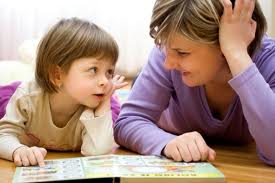Stages in Growing up: 18 months to Two Years Old
Posted in Labels: growth stages, stages of growing up, two years old | |
| 18 months to 2 years old |
Children of these stages in growing up (18 months to two years old) are full of energy. They love to explore and to manipulate objects, and they can entertain themselves for short periods. As their major muscles develop, their walking skills increase. Parents should be patient and offer encouragement as they begin to develop bladder control and, later, control their bowels.
Children of these stages in growing up begin to learn what is acceptable and unacceptable behaviour as they test limits. Constant adult supervision is still necessary, because toddlers cannot determine what behaviour is safe and what is potentially dangerous. Small children respond well to known routines. Something as minor as a sandwich that is cut in a new way can cause distress.
They like being with other children although they usually play near or with a parent. The children watch each other and often imitate each other, but without interacting. Many toddlers have trouble making choices. They are demanding, often inflexible, and constantly in motion.
Toddlers quickly learn to manipulate their parents through tears and tantrums. Small children are more likely to become upset when they are tired, hungry, or rushed. Often tantrums can be avoided when parents carefully plan routine and are clear about what is acceptable behaviour.
When parents are overly controlling or critical, however, children can become filled with self-doubt. Although children of these stages in growing up (18 months to two years old) can be trying, they can also be loving companions—and fun to be with.
SHARE YOUR THOUGHTS WITH US. YOUR COMMENTS AND FEEDBACK WILL BE APPRECIATED!!
Stages in Growing Up: 18 months to Two Years Old is a blog post on Modern Parenting Tips: Styles & Approach to Train & Discipline Children














